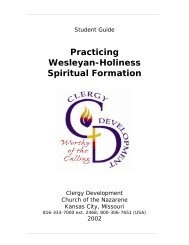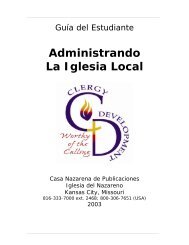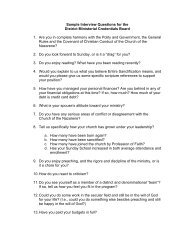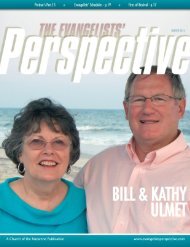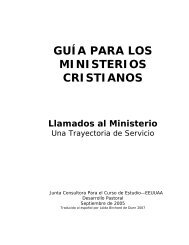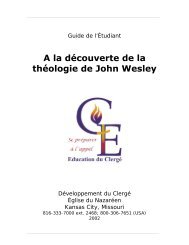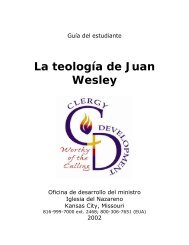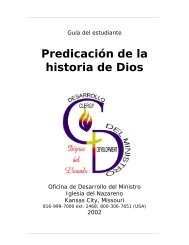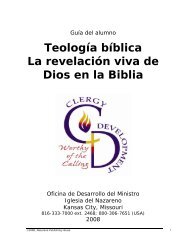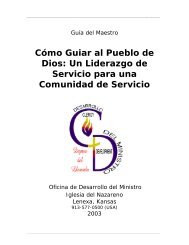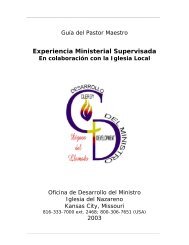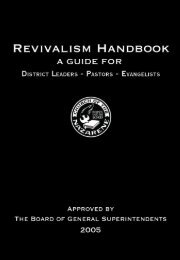- Page 1 and 2: ___________________________________
- Page 3 and 4: Introduction ______________________
- Page 5 and 6: Introduction ______________________
- Page 7 and 8: Introduction ______________________
- Page 9 and 10: Introduction ______________________
- Page 11: Introduction ______________________
- Page 15 and 16: Introduction ______________________
- Page 17 and 18: Introduction ______________________
- Page 19 and 20: Introduction ______________________
- Page 21 and 22: Introduction ______________________
- Page 23 and 24: Introduction ______________________
- Page 25 and 26: Introduction ______________________
- Page 27 and 28: Introduction ______________________
- Page 29 and 30: Introduction ______________________
- Page 31 and 32: Introduction ______________________
- Page 33 and 34: Lección 1: ¿Qué es formación es
- Page 35 and 36: Lección 1: ¿Qué es formación es
- Page 37 and 38: Lección 1: ¿Qué es formación es
- Page 39 and 40: Lección 1: ¿Qué es formación es
- Page 41 and 42: Lección 1: ¿Qué es formación es
- Page 43 and 44: Lección 2: ¿Quién necesita ser t
- Page 45 and 46: Lección 2: ¿Quién necesita ser t
- Page 47 and 48: Lección 2: ¿Quién necesita ser t
- Page 49 and 50: Lección 2: ¿Quién necesita ser t
- Page 51 and 52: Lección 2: ¿Quién necesita ser t
- Page 53 and 54: Lección 2: ¿Quién necesita ser t
- Page 55 and 56: Lección 2: ¿Quién necesita ser t
- Page 57 and 58: Lección 2: ¿Quién necesita ser t
- Page 59 and 60: Lección 3: Tres preguntas claves _
- Page 61 and 62: Lección 3: Tres preguntas claves _
- Page 63 and 64:
Lección 3: Tres preguntas claves _
- Page 65 and 66:
Lección 3: Tres preguntas claves _
- Page 67 and 68:
Lección 3: Tres preguntas claves _
- Page 69 and 70:
Lección 3: Tres preguntas claves _
- Page 71 and 72:
Lección 3: Tres preguntas claves _
- Page 73 and 74:
Lección 4: Devastado por el pecado
- Page 75 and 76:
Lección 4: Devastado por el pecado
- Page 77 and 78:
Lección 4: Devastado por el pecado
- Page 79 and 80:
Lección 4: Devastado por el pecado
- Page 81 and 82:
Lección 4: Devastado por el pecado
- Page 83 and 84:
Lección 4: Devastado por el pecado
- Page 85 and 86:
Lección 4: Devastado por el pecado
- Page 87 and 88:
Lección 5: ¿Cómo es Dios _______
- Page 89 and 90:
Lección 5: ¿Cómo es Dios _______
- Page 91 and 92:
Lección 5: ¿Cómo es Dios _______
- Page 93 and 94:
Lección 5: ¿Cómo es Dios _______
- Page 95 and 96:
Lección 5: ¿Cómo es Dios _______
- Page 97 and 98:
Lección 5: ¿Cómo es Dios _______
- Page 99 and 100:
Lección 5: ¿Cómo es Dios _______
- Page 101 and 102:
Lección 6: Qué es lo especial en
- Page 103 and 104:
Lección 6: Qué es lo especial en
- Page 105 and 106:
Lección 6: Qué es lo especial en
- Page 107 and 108:
Lección 6: Qué es lo especial en
- Page 109 and 110:
Lección 6: Qué es lo especial en
- Page 111 and 112:
Lección 7: Momentos transformadore
- Page 113 and 114:
Lección 7: Momentos transformadore
- Page 115 and 116:
Lección 7: Momentos transformadore
- Page 117 and 118:
Lección 7: Momentos transformadore
- Page 119 and 120:
Lección 7: Momentos transformadore
- Page 121 and 122:
Lección 7: Momentos transformadore
- Page 123 and 124:
Lección 8: Gracia santificadora: E
- Page 125 and 126:
Lección 8: Gracia santificadora: E
- Page 127 and 128:
Lección 8: Gracia santificadora: E
- Page 129 and 130:
Lección 8: Gracia santificadora: E
- Page 131 and 132:
Lección 8: Gracia santificadora: E
- Page 133 and 134:
Lección 8: Gracia santificadora: E
- Page 135 and 136:
Lección 8: Gracia santificadora: E
- Page 137 and 138:
Lección 9: Santificación: El pere
- Page 139 and 140:
Lección 9: Santificación: El pere
- Page 141 and 142:
Lección 9: Santificación: El pere
- Page 143 and 144:
Lección 9: Santificación: El pere
- Page 145 and 146:
Lección 9: Santificación: El pere
- Page 147 and 148:
Lección 9: Santificación: El pere
- Page 149 and 150:
Lección 9: Santificación: El pere
- Page 151 and 152:
Lección 9: Santificación: El pere
- Page 153 and 154:
Lección 9: Santificación: El pere
- Page 155 and 156:
Lección 10: Tres maneras de leer l
- Page 157 and 158:
Lección 10: Tres maneras de leer l
- Page 159 and 160:
Lección 10: Tres maneras de leer l
- Page 161 and 162:
Lección 10: Tres maneras de leer l
- Page 163 and 164:
Lección 10: Tres maneras de leer l
- Page 165 and 166:
Lección 10: Tres maneras de leer l
- Page 167 and 168:
Lección 10: Tres maneras de leer l
- Page 169 and 170:
Lección 10: Tres maneras de leer l
- Page 171 and 172:
Lección 10: Tres maneras de leer l
- Page 173 and 174:
Lección 11: Oración: Adoración,
- Page 175 and 176:
Lección 11: Oración: Adoración,
- Page 177 and 178:
Lección 11: Oración: Adoración,
- Page 179 and 180:
Lección 11: Oración: Adoración,
- Page 181 and 182:
Lección 11: Oración: Adoración,
- Page 183 and 184:
Lección 12: Oración: Confesión,
- Page 185 and 186:
Lección 12: Oración: Confesión,
- Page 187 and 188:
Lección 12: Oración: Confesión,
- Page 189 and 190:
Lección 12: Oración: Confesión,
- Page 191 and 192:
Lección 12: Oración: Confesión,
- Page 193 and 194:
Lección 12: Oración: Confesión,
- Page 195 and 196:
Lección 12: Oración: Confesión,
- Page 197 and 198:
Lección 12: Oración: Confesión,
- Page 199 and 200:
Lección 13: Escribir un Diario com
- Page 201 and 202:
Lección 13: Escribir un Diario com
- Page 203 and 204:
Lección 13: Escribir un Diario com
- Page 205 and 206:
Lección 13: Escribir un Diario com
- Page 207 and 208:
Lección 13: Escribir un Diario com
- Page 209 and 210:
Lección 13: Escribir un Diario com
- Page 211 and 212:
Lección 13: Escribir un Diario com
- Page 213 and 214:
Lección 13: Escribir un Diario com
- Page 215 and 216:
Lección 14: El ayuno y las discipl
- Page 217 and 218:
Lección 14: El ayuno y las discipl
- Page 219 and 220:
Lección 14: El ayuno y las discipl
- Page 221 and 222:
Lección 14: El ayuno y las discipl
- Page 223 and 224:
Lección 14: El ayuno y las discipl
- Page 225 and 226:
Lección 14: El ayuno y las discipl
- Page 227 and 228:
Lección 14: El ayuno y las discipl
- Page 229 and 230:
Lección 15: Adoración formativa c
- Page 231 and 232:
Lección 15: Adoración formativa c
- Page 233 and 234:
Lección 15: Adoración formativa c
- Page 235 and 236:
Lección 15: Adoración formativa c
- Page 237 and 238:
Lección 15: Adoración formativa c
- Page 239 and 240:
Lección 15: Adoración formativa c
- Page 241 and 242:
Lección 15: Adoración formativa c
- Page 243 and 244:
Lección 15: Adoración formativa c
- Page 245 and 246:
Lección 15: Adoración formativa c
- Page 247 and 248:
Lección 15: Adoración formativa c
- Page 249 and 250:
Lección 15: Adoración formativa c
- Page 251 and 252:
Lección 16: Los sacramentos como m
- Page 253 and 254:
Lección 16: Los sacramentos como m
- Page 255 and 256:
Lección 16: Los sacramentos como m
- Page 257 and 258:
Lección 16: Los sacramentos como m
- Page 259 and 260:
Lección 16: Los sacramentos como m
- Page 261 and 262:
Lección 16: Los sacramentos como m
- Page 263 and 264:
Lección 16: Los sacramentos como m
- Page 265 and 266:
Lección 17: Compañeros en el pere
- Page 267 and 268:
Lección 17: Compañeros en el pere
- Page 269 and 270:
Lección 17: Compañeros en el pere
- Page 271 and 272:
Lección 17: Compañeros en el pere
- Page 273 and 274:
Lección 17: Compañeros en el pere
- Page 275 and 276:
Lección 17: Compañeros en el pere
- Page 277 and 278:
Lección 18: Consejero en la fe y a
- Page 279 and 280:
Lección 18: Consejero en la fe y a
- Page 281 and 282:
Lección 18: Consejero en la fe y a
- Page 283 and 284:
Lección 18: Consejero en la fe y a
- Page 285 and 286:
Lección 18: Consejero en la fe y a
- Page 287 and 288:
Lección 18: Consejero en la fe y a
- Page 289 and 290:
Lección 18: Consejero en la fe y a
- Page 291 and 292:
Lección 18: Consejero en la fe y a
- Page 293 and 294:
Lección 19: Las disciplinas espiri
- Page 295 and 296:
Lección 19: Las disciplinas espiri
- Page 297 and 298:
Lección 19: Las disciplinas espiri
- Page 299 and 300:
Lección 19: Las disciplinas espiri
- Page 301 and 302:
Lección 19: Las disciplinas espiri
- Page 303 and 304:
Lección 19: Las disciplinas espiri
- Page 305 and 306:
Lección 19: Las disciplinas espiri
- Page 307 and 308:
Lección 19: Las disciplinas espiri
- Page 309 and 310:
Lección 17: Un repaso de la espiri
- Page 311 and 312:
Lección 17: Un repaso de la espiri
- Page 313 and 314:
Lección 17: Un repaso de la espiri
- Page 315 and 316:
Lección 17: Un repaso de la espiri
- Page 317 and 318:
Lección 17: Un repaso de la espiri
- Page 319 and 320:
Lección 17: Un repaso de la espiri



